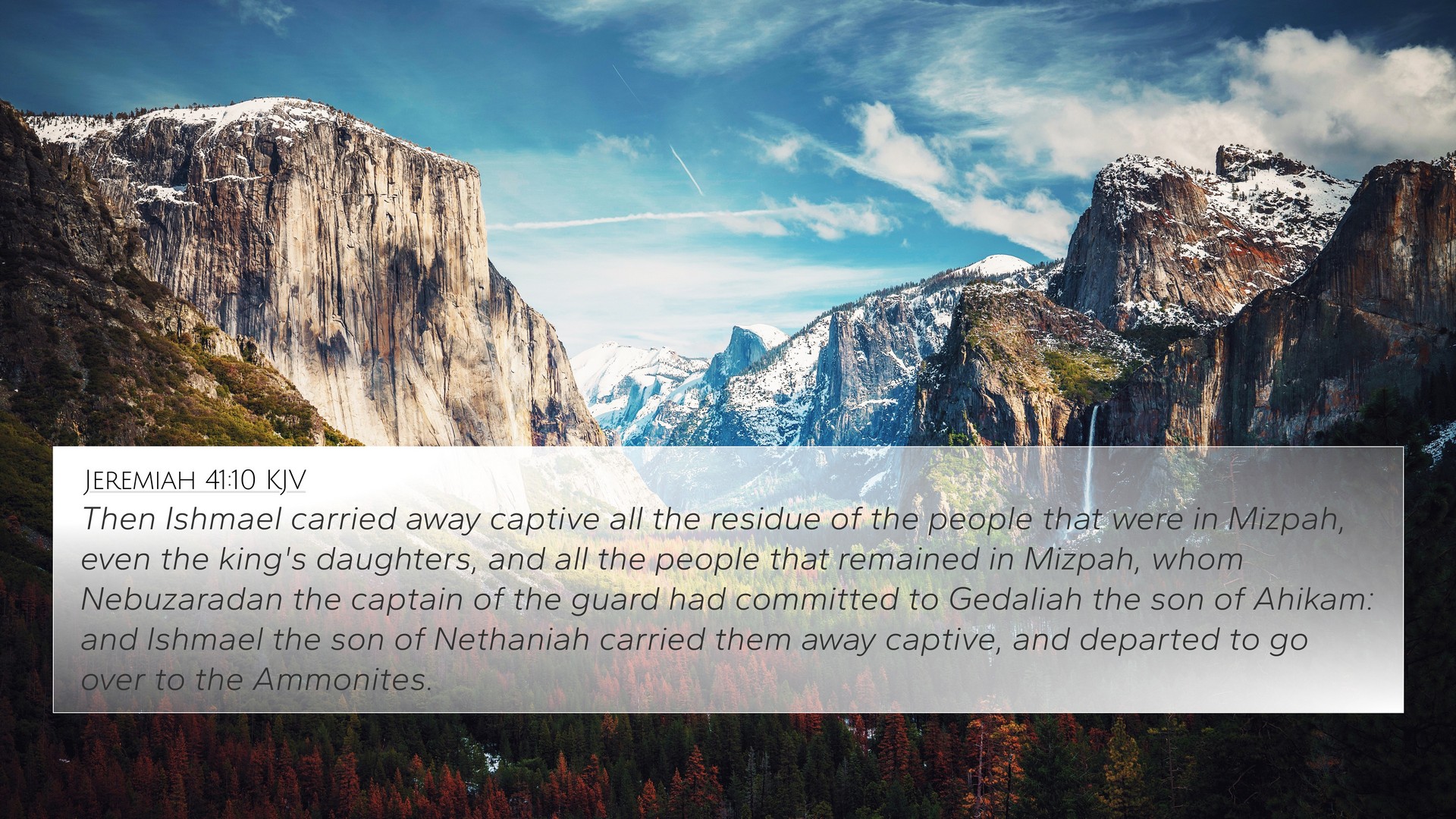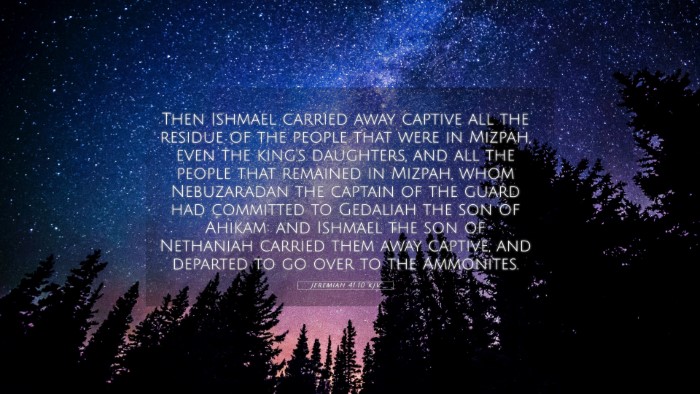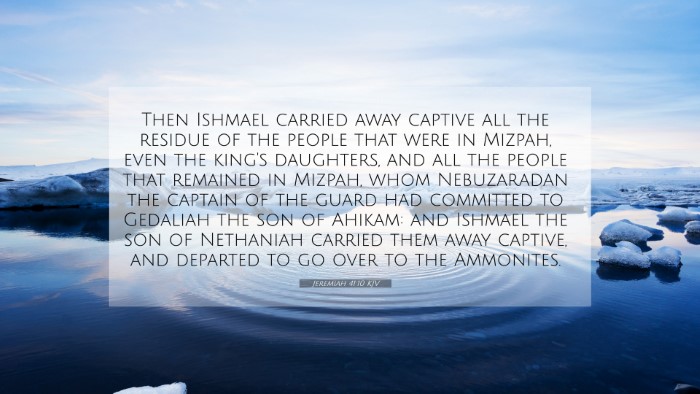This section features a detailed cross-reference designed to enrich your understanding of the Scriptures.
Below, you will find carefully selected verses that echo the themes and teachings related to Jeremiah 41:10 KJV. Click on any image to explore detailed analyses of related Bible verses and uncover deeper theological insights.
 Jeremiah 40:14 (KJV) »
Jeremiah 40:14 (KJV) »
And said unto him, Dost thou certainly know that Baalis the king of the Ammonites hath sent Ishmael the son of Nethaniah to slay thee? But Gedaliah the son of Ahikam believed them not.
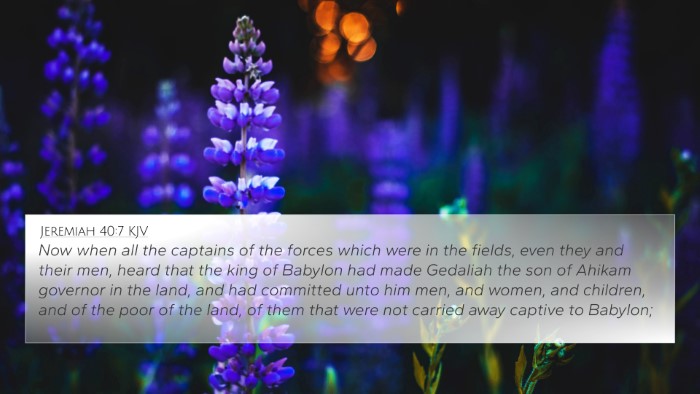 Jeremiah 40:7 (KJV) »
Jeremiah 40:7 (KJV) »
Now when all the captains of the forces which were in the fields, even they and their men, heard that the king of Babylon had made Gedaliah the son of Ahikam governor in the land, and had committed unto him men, and women, and children, and of the poor of the land, of them that were not carried away captive to Babylon;
 Jeremiah 40:11 (KJV) »
Jeremiah 40:11 (KJV) »
Likewise when all the Jews that were in Moab, and among the Ammonites, and in Edom, and that were in all the countries, heard that the king of Babylon had left a remnant of Judah, and that he had set over them Gedaliah the son of Ahikam the son of Shaphan;
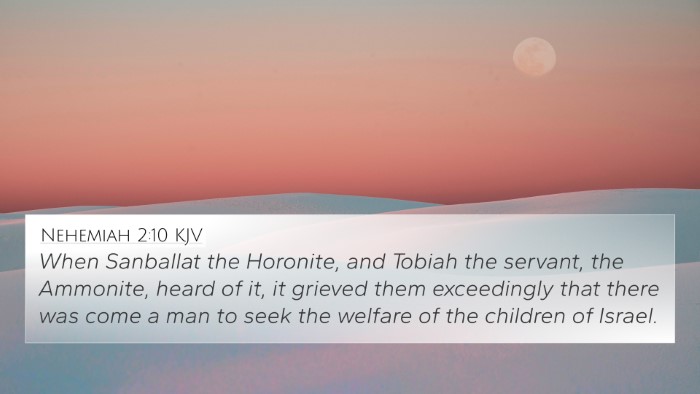 Nehemiah 2:10 (KJV) »
Nehemiah 2:10 (KJV) »
When Sanballat the Horonite, and Tobiah the servant, the Ammonite, heard of it, it grieved them exceedingly that there was come a man to seek the welfare of the children of Israel.
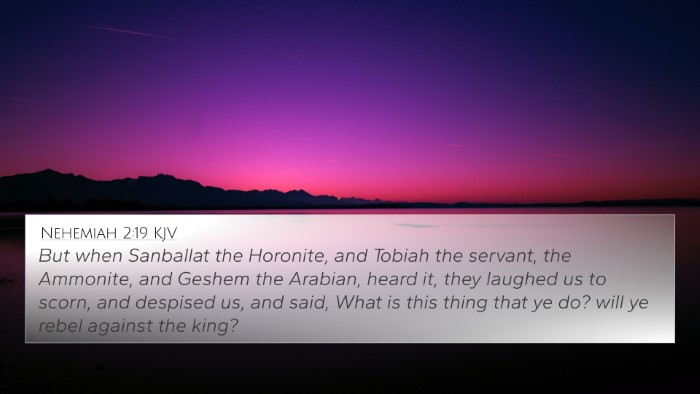 Nehemiah 2:19 (KJV) »
Nehemiah 2:19 (KJV) »
But when Sanballat the Horonite, and Tobiah the servant, the Ammonite, and Geshem the Arabian, heard it, they laughed us to scorn, and despised us, and said, What is this thing that ye do? will ye rebel against the king?
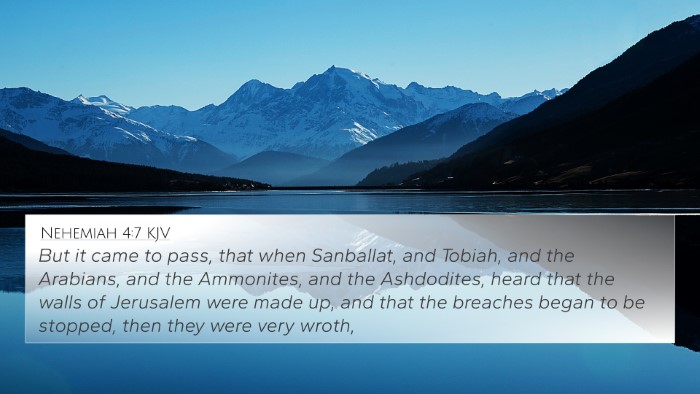 Nehemiah 4:7 (KJV) »
Nehemiah 4:7 (KJV) »
But it came to pass, that when Sanballat, and Tobiah, and the Arabians, and the Ammonites, and the Ashdodites, heard that the walls of Jerusalem were made up, and that the breaches began to be stopped, then they were very wroth,
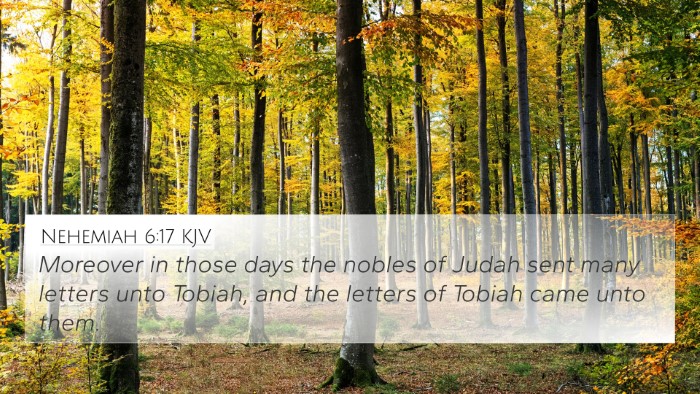 Nehemiah 6:17 (KJV) »
Nehemiah 6:17 (KJV) »
Moreover in those days the nobles of Judah sent many letters unto Tobiah, and the letters of Tobiah came unto them.
 Jeremiah 44:12 (KJV) »
Jeremiah 44:12 (KJV) »
And I will take the remnant of Judah, that have set their faces to go into the land of Egypt to sojourn there, and they shall all be consumed, and fall in the land of Egypt; they shall even be consumed by the sword and by the famine: they shall die, from the least even unto the greatest, by the sword and by the famine: and they shall be an execration, and an astonishment, and a curse, and a reproach.
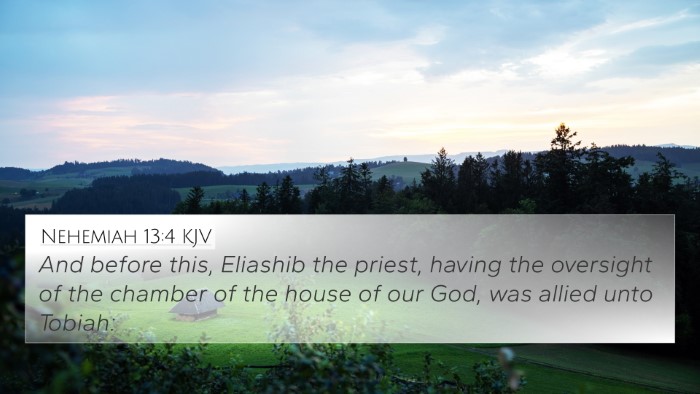 Nehemiah 13:4 (KJV) »
Nehemiah 13:4 (KJV) »
And before this, Eliashib the priest, having the oversight of the chamber of the house of our God, was allied unto Tobiah:
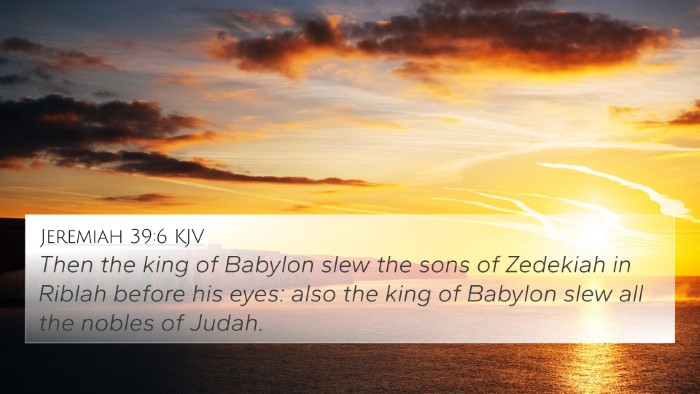 Jeremiah 39:6 (KJV) »
Jeremiah 39:6 (KJV) »
Then the king of Babylon slew the sons of Zedekiah in Riblah before his eyes: also the king of Babylon slew all the nobles of Judah.
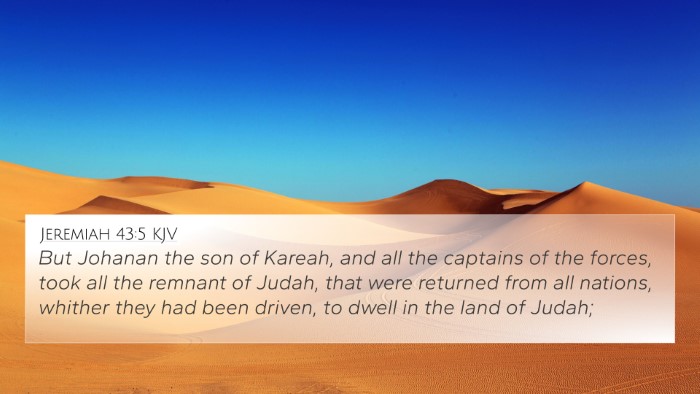 Jeremiah 43:5 (KJV) »
Jeremiah 43:5 (KJV) »
But Johanan the son of Kareah, and all the captains of the forces, took all the remnant of Judah, that were returned from all nations, whither they had been driven, to dwell in the land of Judah;
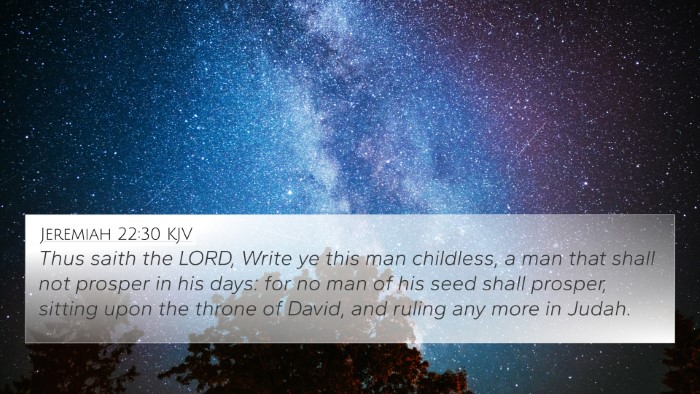 Jeremiah 22:30 (KJV) »
Jeremiah 22:30 (KJV) »
Thus saith the LORD, Write ye this man childless, a man that shall not prosper in his days: for no man of his seed shall prosper, sitting upon the throne of David, and ruling any more in Judah.
